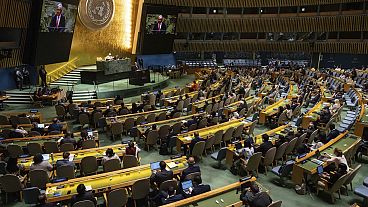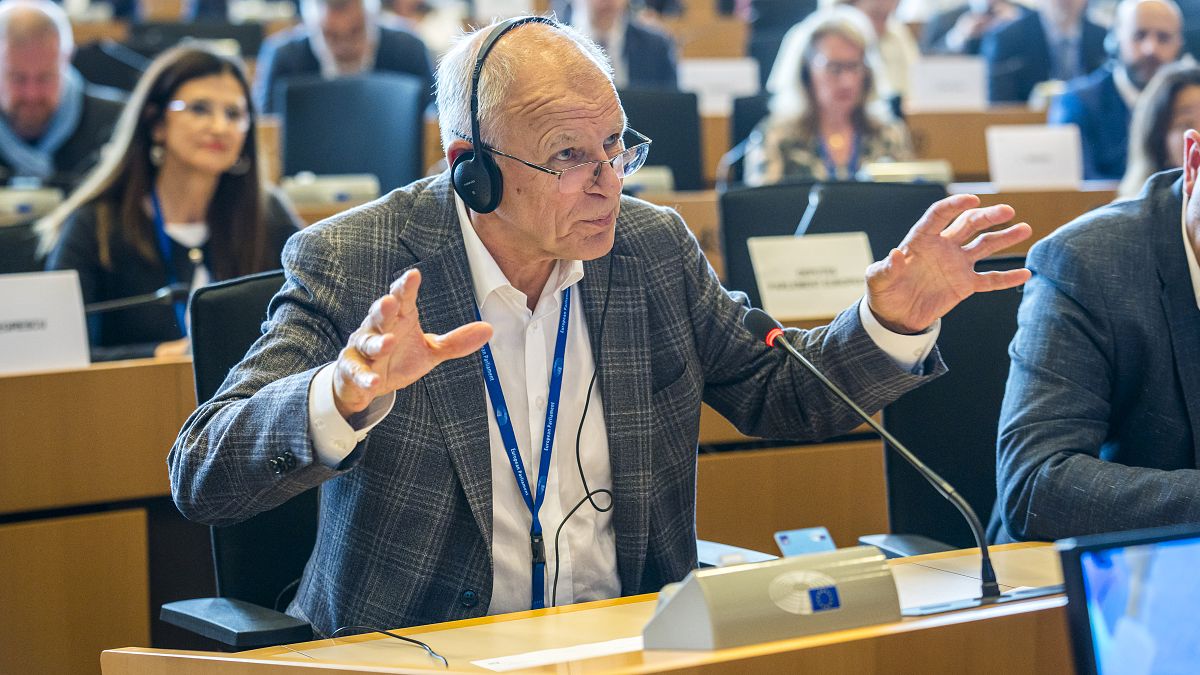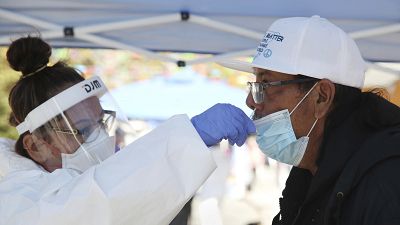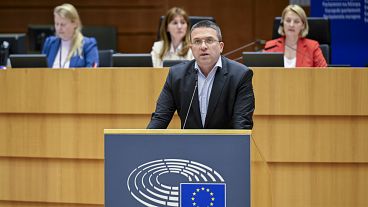European public health policy came into sharp focus during the coronavirus pandemic, but momentum towards creating a more coordinated and centralised EU system is now ebbing away, a leading MEP and heart surgeon tells Euronews in an exclusive interview.
Vytenis Andriukaitis, who served as EU health commissioner in the five years to 2019 and is now public health policy coordinator for the Socialists & Democrats’ group in the European Parliament, said the treaty change may even be needed to avoid “ridiculous” situations where the European Commission can coordinate vaccination of animals but not children.
Change was needed to strengthen the EU's competencies in public health, and to improve coordination between member states and accountability, the freshly elected MEP said.
With health being mainly a national competence, Andriukaitis questioned how much the EU can really do at present – and by extension the potential effectiveness of the EU Health Union presented by the European Commission in May 2024.
“When we use the words ‘European Health Union’ we are going in a strange direction because we [the EU] only have competencies in cross-border healthcare,” he said.
The Commission has considerable scope to intervene directly in policy areas such as internal market and agriculture. But when it comes to healthcare, Andriukaitis said it was limited to “soft powers”, like setting up things like coordination and solidarity mechanisms.
This, he argues, leads to a situation where regulations in areas such as tobacco control and chemicals end up being “market-driven” rather than focused on public health priorities.
The Lithuanian lawmaker is a strong advocate for amending the EU’s founding treaties to concentrate more power over public health policy in Brussels. As he put it, there are some challenges countries cannot face by themselves.
“No one country can solve the problems [of] rare diseases alone, from diagnostics to treatment,” he said, mentioning the need for cooperation to tackle drug shortages and the ongoing crisis of a shortage of healthcare workers.
During his time in the Commission, Andriukaitis had the tools to vaccinate animals against avian flu, but no means to help member states with shortages of vaccines for children. “It was ridiculous,” he said.
What can the next Health Commissioner do?
The talk in Brussels at the moment is all about who will take over at the end of the year from Cypriot incumbent Stella Kyriakides – a question that newly re-elected President Ursula von der Leyen might answer tomorrow (17 September) in Strasbourg.
The new mandate brings with it many challenges, MEPs warned during the first Public Health Committee meeting in Brussels, including the need to tackle antimicrobial resistance, the growing impact of digitalisation and the rise of non-communicable diseases – not to mention cuts to the EU's health budget.
“Now we are seeing the Council proposing austerity policies, just calling it [by] another name,” Andriukaitis added, in reference to a recent decision by EU governments to return to pre-pandemic limits on government debt and deficits.
The former Commissioner – a trained heart surgeon who sat for many years in Lithuania’s national parliament, including a stint as health minister – is convinced the second von der Leyen administration must strengthen pandemic preparedness and prevention measures.
The European Health Emergency Preparedness and Response Authority (HERA), currently a directorate-general within the EU executive, should be upgraded to a fully-fledged EU agency, with commensurate powers, Andriukaitis said.
The Commission could also exercise more influence in the field by helping member states individually through country-specific recommendations – an approach that Andriukaitis noted had already been floated during his time under former president Jean-Claude Juncker.
“That is a much stronger instrument: recommending, analysing and asking member states to report back,” Andriukaitis said.















